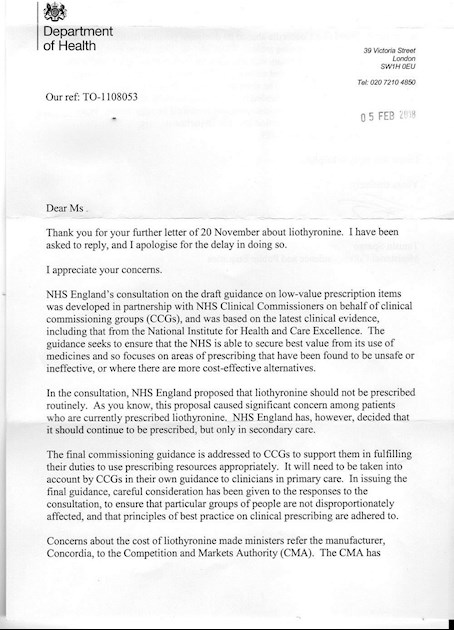Had another letter from DOH which I will be responding too as typically doesn't answer my questions. I was prescribed my Liothyronine in secondary care and it should not have been abruptly stopped. Not sure if I can add both pages here so may have to do them separately. I've been trying to find out what NICE actually say about this. So far the only paper I've found doesn't seem to class it as "unsafe or ineffective. Does anyone have anything on this please?
Page two continues in healthunlocked.com/thyroidu...

